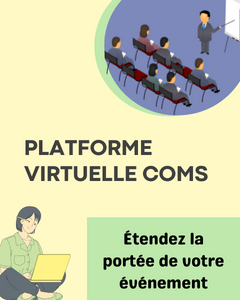Conférences > Physique > Physique numérique
Sélecionner un pays
Allemagne (3) - Belgique (1) - Brésil (1) - Canada (3) - France (2) - Hongrie (1) - Italie (3) - Japon (1) - Royaume-Uni (1) - République tchèque (1) - Serbie (1) - Viêt Nam (1) - États-Unis (1)
TOUS LES PAYS (20)
1
Intermediate MCNP6® - 2026
16 mar 2026 - 20 mar 2026 • Paris, NEA Headquarters , France
Identifiant de l'évènement:
1678585
2
Advanced MCNP6® - 2026
23 mar 2026 - 27 mar 2026 • Paris, NEA Headquarters , France
Identifiant de l'évènement:
1678639
3
TWOFCS 2026 — Technical Workshop on Fuel Cycle Simulation
15 avr 2026 - 17 avr 2026 • Tokyo, Japon
Identifiant de l'évènement:
1678626
Page web:
4
The Sign Problem of Fermions: Computational Challenges and Emerging Approaches
20 avr 2026 - 24 avr 2026 • Trente, Italie
Identifiant de l'évènement:
1690481
Page web:
5
NAFEMS EE26 — NAFEMS Eastern Europe Conference 2026
28 avr 2026 - 29 avr 2026 • Budapest, Hongrie
Identifiant de l'évènement:
1673891
6
Conference: Stability of Shock Waves and other Structures in Gas Dynamics
04 mai 2026 - 08 mai 2026 • Toronto, Ontario, Canada
Identifiant de l'évènement:
1685444
7
Conference: Singularity Formation and Propagation in Gas Dynamics
11 mai 2026 - 14 mai 2026 • Toronto, Ontario, Canada
Identifiant de l'évènement:
1685443
8
NPTwins 2026 — Digital Twins for Nuclear and Particle physics
11 mai 2026 - 15 mai 2026 • Trente, Italie
Identifiant de l'évènement:
1690628
Page web:
9
IAUS405 — IAUS 405: Traversing the Galactic Center in Space and Time
18 mai 2026 - 22 mai 2026 • Brno, République tchèque
Identifiant de l'évènement:
1664284
Page web:
10
Lake Como School — AEMM: ACOUSTIC AND ELASTIC METAMATERIALS: NEW PHYSICS AND MODELLING TECHNIQUES FOR CHALLENGING APPLICATIONS
08 jui 2026 - 12 jui 2026 • Como, Italie
Identifiant de l'évènement:
1690111
Page web:
11
Workshop — Engineered strongly-interacting lattice models with atomic quantum simulators
29 jui 2026 - 03 jul 2026 • Dresden, Allemagne
Identifiant de l'évènement:
1683272
12
Variational Problems in the Physical and Data Sciences: Analysis, Modeling, and Simulation
05 jul 2026 - 10 jul 2026 • Banff, Alberta, Canada
Identifiant de l'évènement:
1668702
13
AUTOMATA & ACRI 2026 — AUTOMATA & ACRI 2026
06 jul 2026 - 10 jul 2026 • Gand, Belgique
Identifiant de l'évènement:
1692330
Page web:
14
Workshop — High-Dimensional Computation in Soft Matter
13 jul 2026 - 17 jul 2026 • Dresden, Allemagne
Identifiant de l'évènement:
1683295
15
WE-Heraeus-Seminar — Past, Present and Future of Reverse Monte Carlo Modeling: Recent Challenges in Determining Structure‐ Property Relationship in Materials
27 jul 2026 - 31 jul 2026 • Bad Honnef, Allemagne
16
MHBW02 — Modelling Behaviour for Global Challenges: Epidemics and Energy Systems
10 aou 2026 - 14 aou 2026 • Cambridge, Royaume-Uni
Identifiant de l'évènement:
1685037
Page web:
17
MODEST 26 — MODEST 26: Modelling and Observing Dense Star Clusters in Vietnam
16 aou 2026 - 22 aou 2026 • Quy Nhon, Viêt Nam
Identifiant de l'évènement:
1694364
18
SPIG 2026 — 33rd Summer School and International Symposium on the Physics of Ionized Gases
25 aou 2026 - 28 aou 2026 • Belgrade, Serbie
Identifiant de l'évènement:
1695432
Page web:
19
School on Quantum Simulation in the NISQ Era
09 nov 2026 - 13 nov 2026 • São Paulo, Brésil
Identifiant de l'évènement:
1680676
20
M&C 2027 — International Conference on Mathematics and Computational Methods Applied to Nuclear Science and Engineering 2027
18 avr 2027 - 22 avr 2027 • Columbus, OH, États-Unis
Identifiant de l'évènement:
1678522
Page web:
Conference-Service.com met à la disposition de ses visiteurs des listes de conférences et réunions dans le domaine scientifique. Ces listes sont publiées pour le bénéfice des personnes qui cherchent une conférence, mais aussi, bien sûr, pour celui des organisateurs. Noter que, malgré tout le soin que nous apportons à la vérification des données entrées dans nos listes, nous ne pouvons accepter de responsabilité en ce qui concerne leur exactitude ou étendue. Pensez donc à vérifier les informations présentées avec les organisateurs de la conférence ou de la réunion avant de vous engager à y participer!
Dernière mise à jour: 1 février 2026



